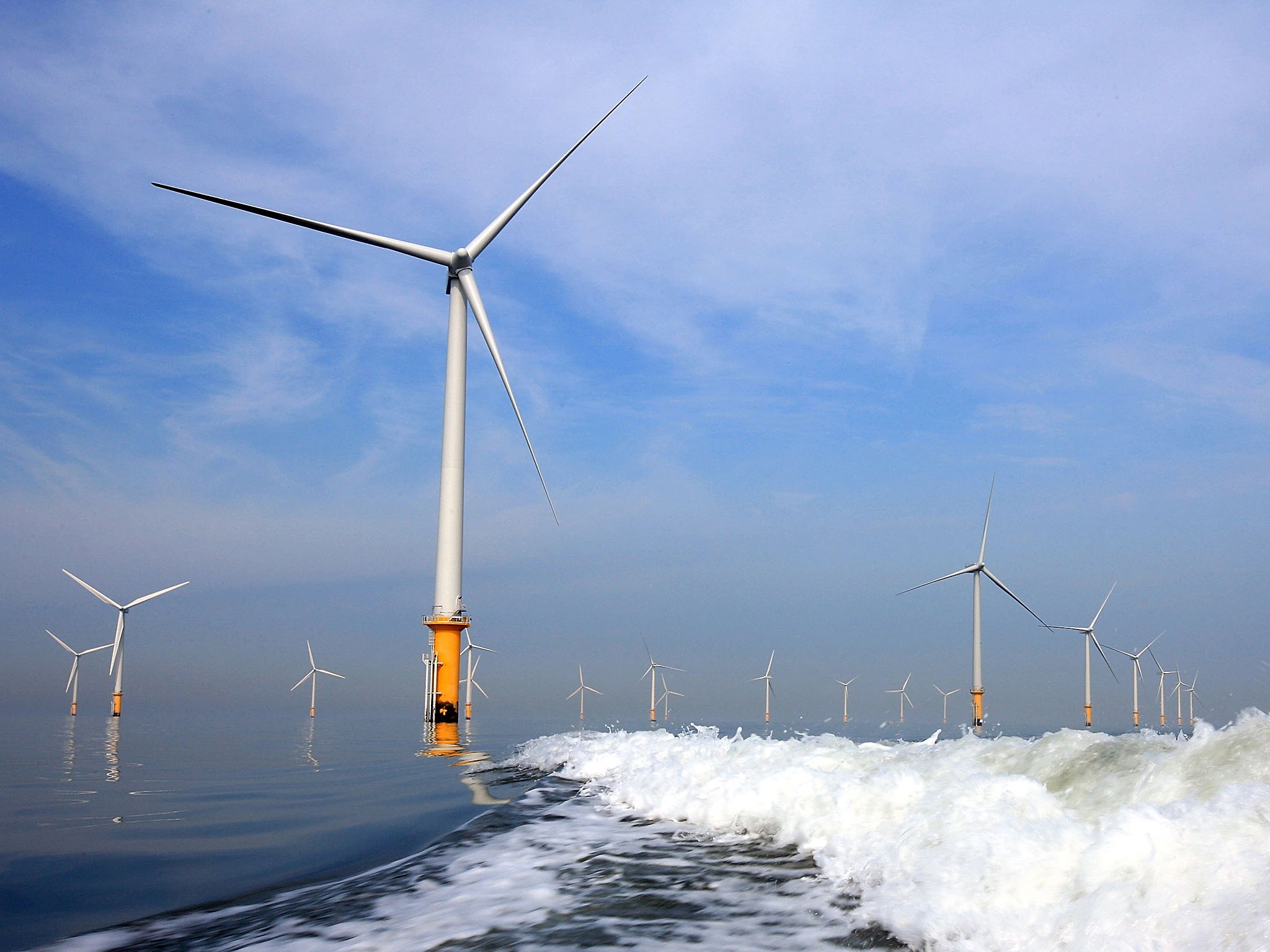Offshore windfarms set to become cheaper source of electricity than nuclear power stations
Government's plan to turn UK into world leader in offshore wind energy receives boost as electricity price halves in five years

Offshore windfarms are set to become a cheaper source of electricity than the Hinkley Point nuclear power plant and are also on track to undercut coal-fired power stations.
The Government, which has been trying to support offshore in the hope of turning the UK into a world-leader in the sector, plans to hold an auction next month in which generators will bid for a guaranteed price for their electricity, with the lowest offer declared the winner.
This means that if the market price for electricity falls below that level after the turbines are built, the Government makes up the difference using money from a levy on energy bill payers.
The planned nuclear plant at Hinkley Point in Somerset has been given a guaranteed price of £92.50 per megawatt-hour (mwh) for 35 years — a generous deal that was required to reassure investors they would see a return on the hefty up-front costs of the plant.
Offshore wind in Europe cost about £190/mwh in 2012, according to Bloomberg New Energy Finance, but this figure has nearly halved in the last five years to just over £100/mwh.
And now the industry is now predicting the UK will see offshore wind become cheaper than some of the more traditional sources of power generation.
While the Government has an official policy against providing subsidies for onshore wind, it has sought to promote the more expensive offshore turbines, partly because of the chance to establish a new industry in the UK based on the expertise developed by the North Sea oil and gas industry. It appears this may be starting to pay off years earlier than anyone expected.
Keith Anderson, chief corporate officer of Scottish Power, one of the main players in the wind industry, told The Independent that he was confident the April auction would see an offshore wind generator bid below the ‘strike price’ given to Hinkley Point.
“I am very hopeful the auction will come in below the Hinkley contract. I feel very positive about that,” he said.
“And these contracts are for only 15 years, 20 years shorter than the Hinkley contract.”
And Dong Energy, the Danish wind power giant, went even further.
Henrik Poulsen, the firm’s chief executive officer, told Bloomberg that offshore wind could already compete with coal, depending on the conditions.
“If you have a sufficiently large site with the right wind speeds, then I do believe you can build offshore wind at least at the same price as new build coal in many places around the world including the US,” he said.
10 photographs to show to anyone who doesn't believe in climate change
Show all 10New coal plants cost about £72/mwh, but in Denmark this price has already been massively undercut.
One offshore wind scheme will supply power for about £52/mwh from 2020, although this is partly because of Danish Government policies that help reduce the development risk.
The UK auction to be held next month is open to technologies considered to be “less established”, such as offshore wind, biomass (combined heat and power), wave and tidal schemes.
A spokesperson for the Department for Business, Energy and Industrial Strategy said: “Offshore wind and clean growth is an important part of the Government's industrial strategy and will be underpinned by £730m of annual support for renewable energy over the course of this Parliament, helping us meet our climate change commitments, deliver skilled jobs and drive growth across the county.”
This article previously stated incorrectly that taxpayers funded the guaranteed price awarded under the Government's 'Contracts for Difference' power auctions. In fact it is paid for by a levy on energy bill payers.
Subscribe to Independent Premium to bookmark this article
Want to bookmark your favourite articles and stories to read or reference later? Start your Independent Premium subscription today.

Join our commenting forum
Join thought-provoking conversations, follow other Independent readers and see their replies